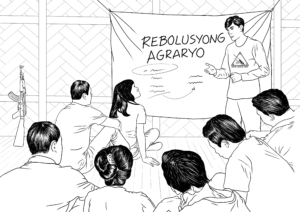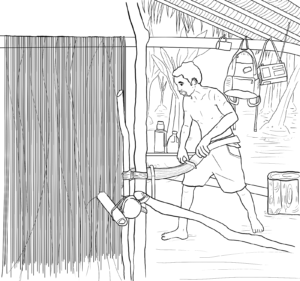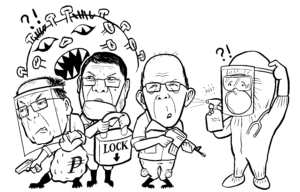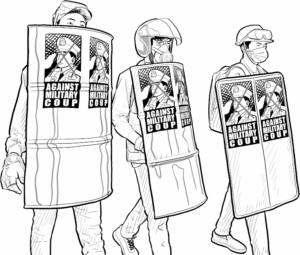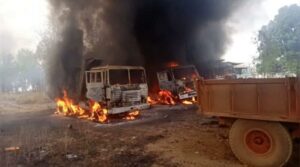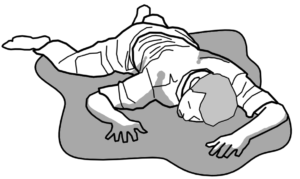Roads for corruption and war in Northern Mindanao


The reactionary government touts about its plan to railroad the construction of farm-to-market roads (FMRs) or road networks which will link farms to markets purportedly to facilitate faster transportation of farm produce and raise farmgate prices. However, these roads have actually no impact on farmgate prices as these are often arbtitrarily set by big traders.
In the case of commercial products such as rice, cacao, coffee, sugar and others, prices are set based on the movement of prices in the global market. In truth, these roads have only hastened the procurement of farm produce by traders at lower rates. These have also hastened the encroachment of landgrabbers in lands owned by small peasants.
The said road construction program has also been implemented by previous regimes. As before, contracts for these projects are riddled with corruption and serve commerical plantation and mining interests, as well as the reactionary state’s counterinsurgency aims.
Roads that link war to corruption
The Northern Mindanao Regional Task Force to End Local Communist Armed Conflict (RTF-ELCAC) earlier announced that 142 road projects worth ₱17.6 billion are set to be constructed in the area this year. This is more than twice of the 68 road projects in the area in 2020. Twenty of these road projects will cover barangays with existing military camps.
Over 68 of the 142 road projects in 2021 are in Bukidnon. Most of these are in Impasug-ong where the 8th IB headquarters is located. Not less than 13 barangays covered by these roads have camps, detachments, or are currently occupied by AFP troops in the name of Retooled Community Support Program operations.
Based on data from the Department of Public Works and Highways (DPWH) in 2020, every kilometer of road costs ₱13 million to construct.. But in Baungon, Bukidnon, the 8-kilometer road which will link the barangays of Mabuhay at Imbatug is worth ₱67.5 milyon per kilometer—five times higher than the average. Meanwhile, the planned 8-kilometer road project in Barangay Concepcion, Valencia City costs ₱30 million per kilometer or more than twice the average.
There were duplicated listings of road projects including the road project in Barangay Kibalabag, Malaybalay City, that was listed thrice and alloted a budget of ₱300 million to ₱360 million per listing. The road in Kisolon, Sumilao was also listed twice and allotted a budget of ₱600 million per listing. Three other programs in the province will receive double allocations under the Barangay Development Program.
Aside from these, the DPWH relisted and will fund road projects already constructed in 2020 or even earlier. Some of which will receive triple allocations under the DPWH budget.
Who will benefit?
With these projects alone, generals of the RTF-ELCAC, local government officials and the DPWH, notorious for being the most corrupt agency of the reactionary state, will be able to pocket huge amounts of public funds. Construction companies which are close to the Duterte family will also benefit from this, including the Ulticon Builders Incorporated, who bagged the contracts for the biggest road projects in Mindanao. Cement-manufacturing companies owned by big bourgeois compradors Ramon Ang (First Stronghold Cement Industries, Inc.) and Tomas Alcantara (Holcim Philippines) will also benefit from this as the biggest competing cement manufactures.
These roads will also benefit the powerplants and commercial plantations which are ubiquitous in Bukidnon. The biggest commercial plantations, covering 127,000 hectares of agricultural land, are located in the region. Dole, Davco and Del Monte which cover entire communities and ancestral lands in seven towns across Bukidnon target to expand their operations by approximately 80,000 hectares within the province and the neighboring towns of Misamis Oriental. The 30 FMRs in these towns will further hasten the transportation of the products of these plantation companies.





